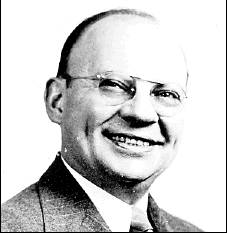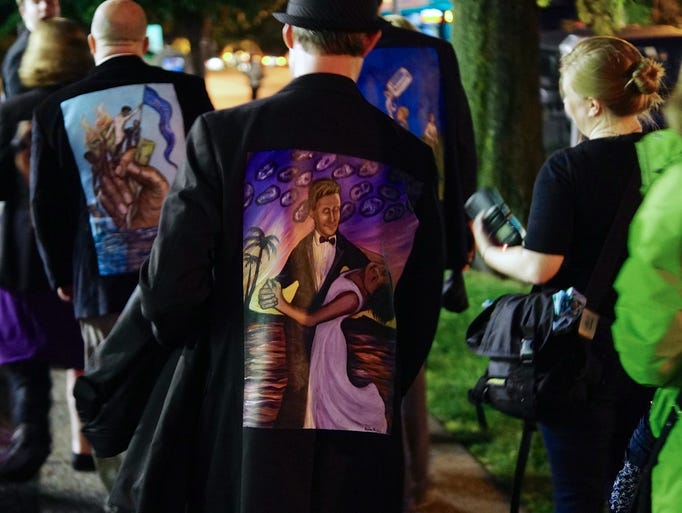Philly funeral homes should post prices online
By Rachel Zeldin
Planning a funeral is extremely difficult, and not just because someone you love has died. The process is chaotic and time-consuming, and having many funeral homes stuck in the pre-Internet age doesn’t help.
If you are like most people, you have never purchased a funeral before, so you have no clue what’s involved. You rarely know your legal rights, the full range of options, or what you do and do not need to buy. Chances are you’ll use a funeral home your family has used before — even if you didn’t like it — or the one nearest your home.
Most people will walk into a funeral home’s for-profit showroom and say, “What do I need?” And because they’re nice and you’re grieving, you believe them when they say, “We’ll take care of everything.” And, chances are, you will naively purchase whatever they suggest.
I know this because my family was one of those consumers back in 2011, passing around the hat to pay for Uncle Rafe’s $10,000 funeral and then for my grandfather later that year.
This process can work out fine, but it doesn’t always. Case in point are the families that unknowingly use funeral homes that don’t keep up with their licensure requirements — or, worse, are legitimately out of business but continue to operate in their communities anyway.
At this point, you may be wondering, what does a valid license for a funeral home or funeral director even mean? Does the license actually protect the consumer? Not really. Pennsylvania doesn’t provide enough resources to actually inspect and oversee the more than 1,600 funeral establishments in the commonwealth.
But even when dealing with reputable, licensed establishments, here’s the real problem: Consumers are stuck researching and organizing an event with an industry that is stuck in 1984.
In 1982, the federal government recognized how vulnerable funeral consumers were and passed a set of laws — called the Funeral Rule — to protect them. Among the protections: Funeral homes must have a general price list that itemizes the costs of all products and services, and they must give a copy to consumers before discussing funeral arrangements. Progress, right? This even standardized pricing to a certain extent, but it also allowed funeral homes to charge a catch-all, non-declinable basic service fee.
Another major flaw is that the rules, passed in ’84 and revised 10 years later, reflect the shopping methods of their time: in person and by phone.
To this day in Philadelphia, you are lucky to find a funeral home with a decent website and even less likely to find one that posts its prices online.
In 2015, the Funeral Consumers Alliance of Greater Philadelphia collected price lists from 86 of the 137 Philadelphia funeral homes through a yearlong effort of calls, emails, and follow-ups. Shockingly, what we learned is that the price of direct cremation ranges from $700 to $4,465 — for the same thing. Embalming ranges from $293 to $3,000. (Of course, the skills of embalmers vary, but those skills are not tied to the prices they’re charging.) The average non-declinable basic service fee is $1,876; that is just the base cost of doing business with a funeral home when you haven’t even purchased any actual services or products yet. (The full survey results are at FCAPhilly.org.)
In a nationally publicized 2015 report by the Funeral Consumers Alliance and Consumer Federation of America assessing ease of access to funeral pricing information, Philadelphia funeral homes proved to be the worst in the nation. Only nine of the 15 surveyed had websites, none had prices online, and three refused to provide prices at all — a violation of federal law. Worse, to obtain a copy of these price lists, it took a minimum of three calls before the information was sent over — by fax.
Hey, funeral homes! How about entering the 21st century and putting your prices online?
Despite multiple requests from consumer groups, the Federal Trade Commission has not sought to update the federal rules. Beyond those rules, most funeral regulations are enacted on a state-by-state basis. So unless lawmakers in Harrisburg take action to require that price lists be posted online, consumers are stuck calling or visiting each funeral home they want information from.
California recognized the difficulties for consumers and now has a law requiring funeral homes with websites to list the goods and services they offer and include a statement that their prices list is available upon request or via a link on the home page.
The effect? In the same 2015 report, 85 percent of the funeral homes surveyed in Orange County, Calif., posted their full price lists, making it exponentially easier for local consumers to do their homework before stepping foot in a funeral home.
Though it’s still not as easy as buying shoes online, it is better than what the rest of the country experiences when shopping for a funeral. California has provided an easy, consumer-friendly measure that allows consumers to educate themselves and protects them from overspending and working with illegitimate businesses.
If the federal and state governments won’t follow California’s lead, it’s up to consumers to improve price transparency and comparison efforts. Call your local funeral home and ask, “Are your prices online? If not, why not?” Let me know what they say.
Rachel Zeldin is the founder andCEO of I’m Sorry to Hear — Funeral
Planning Online
(www.imsorrytohear.com), a Project Liberty Digital Media incubator company housed at Philadelphia
Media Network, and a board member of the Funeral Consumers Alliance of
Greater Philadelphia. rzeldin@imsorrytohear.com





